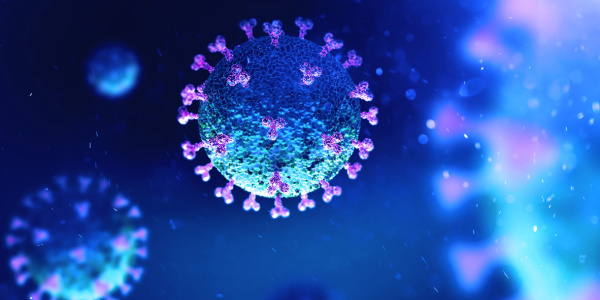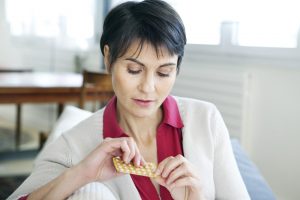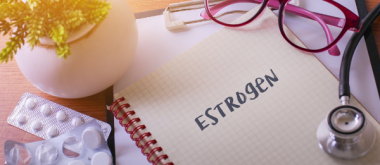An older woman’s estrogen levels may be linked to her likelihood of dying from COVID-19, with higher levels of the hormone appearing to protect against serious infections, a study suggests. For this reason, according to the researchers, it may be worth investigating the possibilities of hormone replacement therapy to curb the severity of COVID-19 infection in women who have already passed menopause.
The Role of Estrogen
Estrogen is an essential hormone involved in the development of female secondary sex characteristics (breasts, hips, pubic and armpit hair) and the regulation of the menstrual cycle. Estrogen is a collective term for three related female sex hormones: estrogen, estradiol and estriol. All of these hormones are made by the ovaries. In the case of pregnancy, the placenta releases estriol to stimulate milk production and other changes in the breasts. When estrogen is no longer produced in sufficient quantities, such as after (or before) menopause, unpleasant symptoms such as painful intercourse, depression, low libido and vaginal dryness can occur. Low estrogen levels can lead to a whole range of health problems.
COVID-19 and Estrogen Levels
Women appear to have a lower risk of severe COVID-19 infection than men, even after accounting for potential contributing factors. And this also applies to other serious viral infections, such as MERS (Middle East Respiratory Syndrome). It has therefore been suggested that estrogen may play a role in this gender discrepancy. To investigate this further, the researchers compared the potential effects of increasing and decreasing estrogen levels on the severity of COVID-19 infection.
They relied on national data from the Swedish Health Agency (all tested positive for SARS-CoV-2); Statistics Sweden (socio-economic factors); and the National Board of Health and Welfare (causes of death). A total of 49,853 women were diagnosed with COVID-19 in Sweden between February 4 and September 14, 2020, of whom 16,693 were between the ages of 50 and 80. The study sample included a total of 14,685 women: 227 (2%) had previously been diagnosed with breast cancer and were taking estrogen blockers (adjuvant therapy) to reduce the risk of cancer recurrence (group 1); and 2,535 (17%) received hormone replacement therapy (HRT) to increase estrogen levels and relieve menopausal symptoms (Group 2). Approximately 11,923 (81%) women served as a comparison group because they were not receiving any treatment, either to increase nor decrease their systemic estrogen levels.
Women on Hormone Replacement Therapy Had a Reduced Risk of Dying From COVID-19
Analysis of all the data showed that compared to women who did not receive estrogen therapy, women who received estrogen blockers (Group 1) were twice as likely to die from COVID-19, but 54% lower for women who did HRT (Group 2). After accounting for potentially influential factors such as age, annual disposable income, educational level, and co-existing health conditions, the odds of dying from COVID-19 remained significantly lower (53%) for women on HRT (group 2).
Not surprisingly, age was significantly associated with the risk of dying from COVID-19, with each additional year being associated with a 15% higher probability, while each additional co-existing condition increased the probability of death by 13%. And those with the lowest household incomes died almost three times as often as those with the highest.
This is an observational study, so no cause can be identified. There were no data on the exact dosages of hormone replacement or estrogen blockers, or the period of use. Weight and nicotine consumption were also not taken into account, while the number of women in group 1 with adjuvant therapy was relatively small. These factors could have had an impact. Still, the researchers were able to establish a link between estrogen levels and death from COVID-19. These are important findings as drugs that increase estrogen levels could serve as therapeutic tools to lessen the severity of COVID-19 in postmenopausal women.






